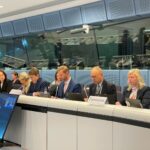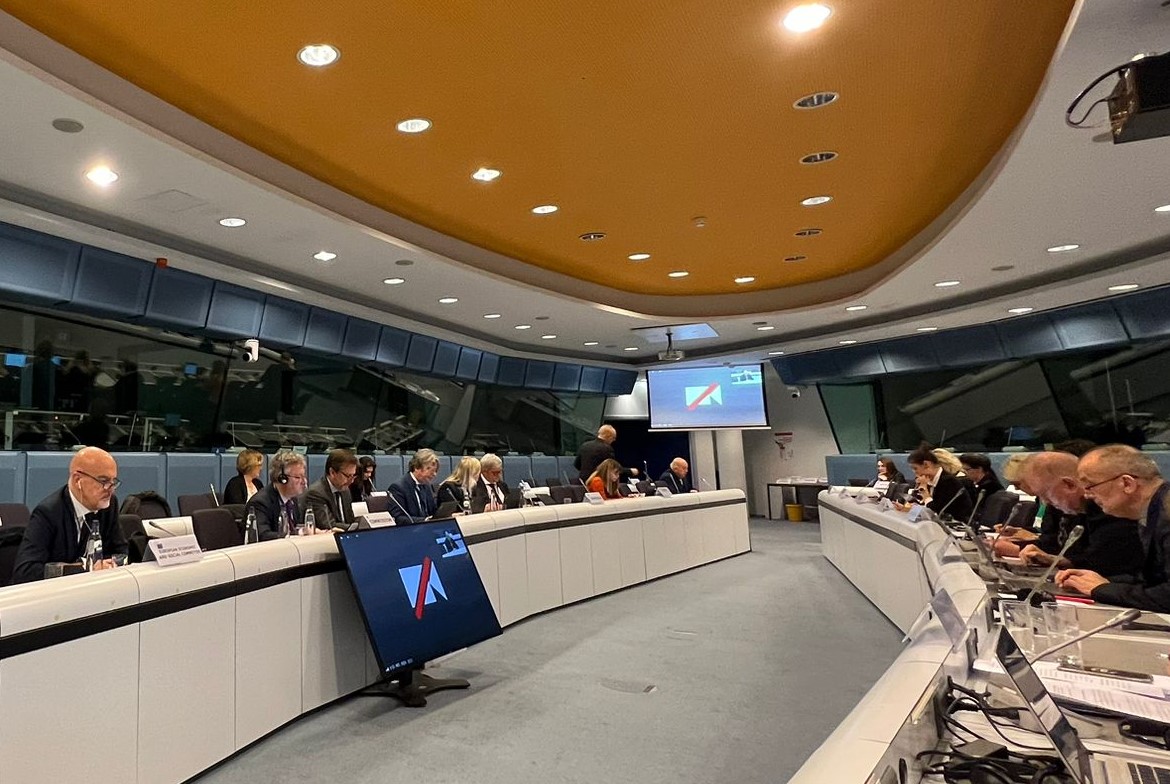© Danube Strategy Point
The morning session of the last day of #EUMRSWeek2023 was the High-Level Group meeting, chaired by the officials from DG Regio, with the participation of the national coordinators of all countries participating in Macro-Regional Strategies (MRS) and a guest representing the civil society from Budapest.
The main topic was the presentation of the 4th European Commission report on the implementation of EU #MRS, which took into account the big challenges: including the COVID-19 pandemic and the war in Ukraine.
The main conclusions were related to the:
👉necessity of revising the old Action Plans,
👉importance of MRS as frameworks for the EU enlargement,
👉increased importance of digital transition,
👉importance of a structured stable governance in MRS,
👉need to accelerate delivery, visibility and measurement of that delivery, emphasising the flexibility and adaptability of the MRS.
The Council conclusions on the 4th Commission report are foreseen for the end of June 2023.
The representative of the European Economic and Social Committee pointed out the importance of a better involvement of the civil society as partner for the European Commission and MSR, increasing the citizens’ dialogue, which would lead to a more effective cooperation and synergies.
During the second part of the meeting, the 4 MRS Presidencies discussed ways to increase the ownership of participating countries and further empower key MRS implementers with clear mandates, effective decision-making capacity and a clear vision of how their fields of work contribute to the broader policy context, while ensuring a stable environment with access to the resources, technical capacity and skills needed.
The Slovenian Presidency pointed out that empowered ownership of all participating countries in #EUSDR is a prerequisite to make the Strategy’s slogan #Prosperitythroughdiversity come true, considering the diversity of the historical and socioeconomic backgrounds of the 14 EUSDR participating countries.
The roles and responsibilities of all EUSDR core stakeholders are well defined in the Governance Architecture paper, which is a first step to enhance the empowerment of relevant stakeholders and implementers in order to increase the ownership of relevant line ministries on the national level.
After an institutional exchange initiated by the Slovenian EUSDR Presidency between #EUSDR core stakeholders and the European Commission on how to increase the ownership and empower key implementers, three interlinked categories resulted:
⭕ visibility ➡ political visibility of macro-regional cooperation should be encouraged by the EUSDR Presidencies and European Commission on all levels.
⭕ stronger stakeholder involvement ➡ ensure presence of the political level as well as Commissioners in MRS activities
⭕ sufficient funding for sound implementation ➡ to unlock the potential of macro-regional cooperation, political commitment could be connected with institutional capacities and using appropriate financial resources to fuel the delivery of desired outcomes.





